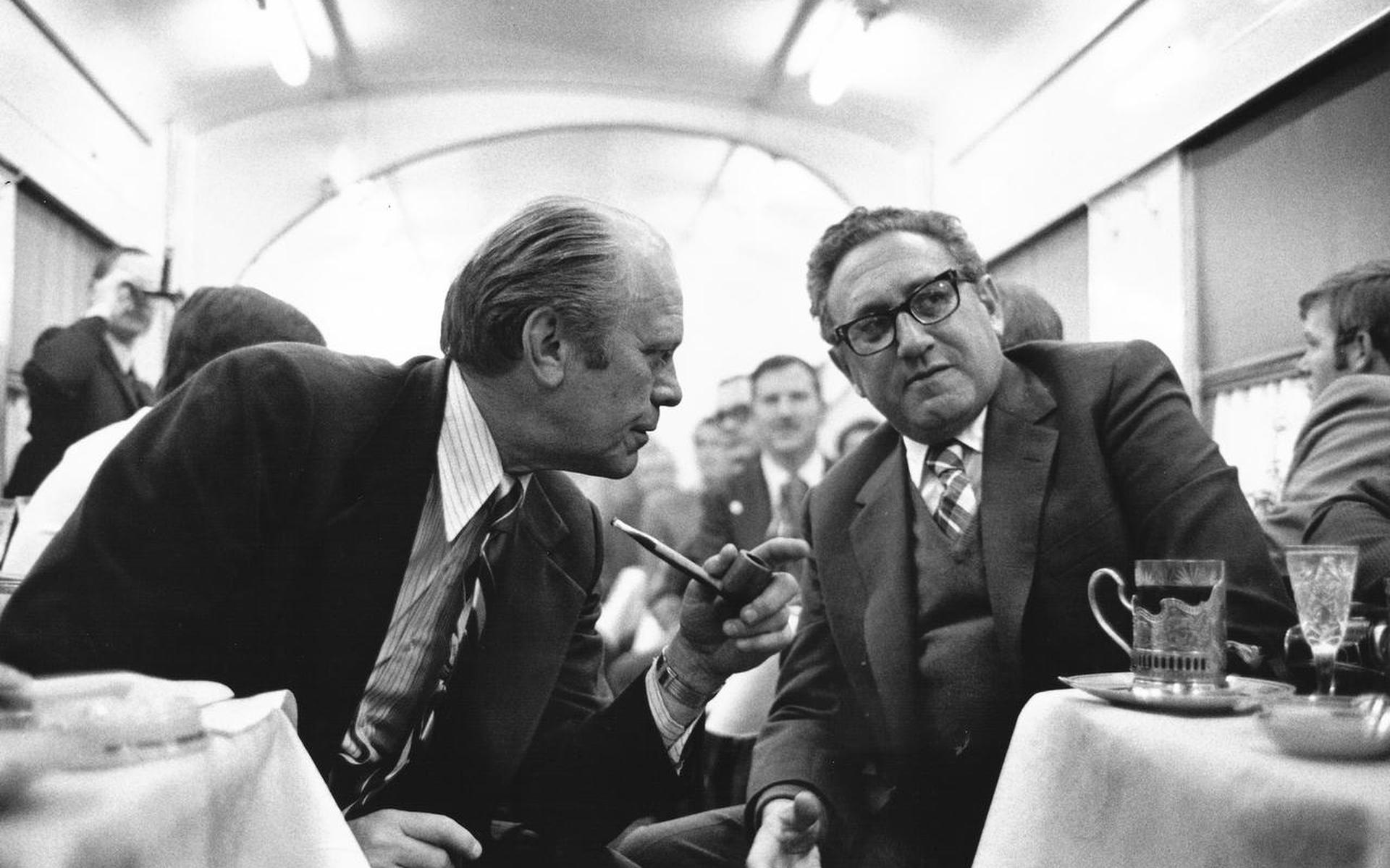He will turn 100 on Saturday, May 27, but the milestone appears to be a break in work on no less than two books, one on artificial intelligence and one on strategic alliances.
Back in 1974, the then ‘Most Admired Man in America’ was depicted as Superman on the cover of a weekly magazine. News week . But more than that, the question is: Is Kissinger, who set America’s foreign and security policy for years, now a hero or a villain?
To no one’s surprise, Henry Kissinger didn’t have squeaky clean hands. He became US President Richard Nixon’s National Security Adviser in 1969 and became the so-called realpolitik in turbulent times. The idea is that America should act primarily from its position of power and purely in its own interest. Kissinger – once called the greatest political analyst since Machiavelli – saw politics logically.
‘Good or bad’ played less of a role here than the final results. Kissinger’s complex nature allowed him to be a great peacemaker and Nobel Peace Prize laureate, as well as a planner and warlord accused of mass murder.
Airplane
Born as Heinz Alfred Kissinger on May 27, 1923 in Furth, Bavaria, he has a legacy to look back on. If the war had not thrown a spanner in the works for Henry’s Jewish family with his father and mother in 1938, the world might have looked different.
During the Second World War, Kissinger, because of his knowledge of German – he still had a ‘Schwarzenegger accent’ in English – quickly joined the military intelligence service, where he undertook dangerous missions. In the final phase of the war, he became involved in finding Nazi criminals.
Cold War
Back on American soil, he got a simple job, evening studies and eventually an education at the prestigious Harvard, where he graduated with a cum laude. After being elected by President Nixon, Kissinger’s popularity rose rapidly. In the government team, he quickly outshone everyone.
In the middle of the Cold War, he became the architect of détente that led to two major nuclear arms deals with the Soviet Union. A succession of these agreements were recently abrogated by Russian President Vladimir Putin. Always focused on American power, Kissinger was also determined to improve relations with the other Communist superpower, China. Mainly to ensure that Russia and China play against each other.
That moment marked the height of Kissinger’s power. It also earned him a new honorary degree; The most essential man in the world. Fewer than 85 percent of Americans supported the policy of the president walking informally into the bedroom if needed.
‘Honorable Peace’
It was especially difficult around the Vietnam War, which tore society apart in America. Nixon promised his voters an “honorable peace” and Kissinger was to deliver it. It turned out differently. Peace talks took place under Kissinger, but the decision was made to escalate the war with bombing raids on Laos and Cambodia.
Tens of thousands of people were killed as a result and the Cambodian regime was overthrown by Pol Pot’s Khmer Rouge. Millions more died during that reign of terror. In 1973 a peace accord was reached with Vietnam and Kissinger was allowed to receive the Nobel Peace Prize. His North Vietnamese counterpart, Lu Duc Tho, was also nominated for the prize, but declined.
‘Dirty Hands’
There were many contradictions involving the center of diplomatic power. Like the Israeli war on Yom Kippur in 1973, for example. Kissinger’s willingness to “get your hands dirty” was especially evident in the American “back yard.” In Chile, socialist President Allende was overthrown and killed in a US-backed military coup. “I don’t see why we should watch a country turn communist because of the irresponsibility of its people,” Kissinger said. The coup in Argentina by General Jorge Videla and his criminal regime can count on his approval.
After Nixon’s downfall in 1976 over the Watergate scandal, Kissinger stayed with successor Gerald Ford. He later provided solicited and unsolicited advice to several presidents.
Balance
Now at age 100 the balance is drawn and it is not always favorable. Politico magazine asked several historians for their opinions. Gary Bass of Princeton University was adamant: “His politics were morally reprehensible and his Cold War strategy a disaster.” David Greenberg of Rutgers University called Kissinger “the most overrated leader of our time,” but Walter Isaacson of the Aspen Institute praised: “We could use a little more of his realism in foreign policy right now.”
No matter how you feel about Kissinger, there’s no denying Texas A&M University’s Luke Nichter’s conclusion: “Hero or villain, he’s larger than life because he’s important.”







